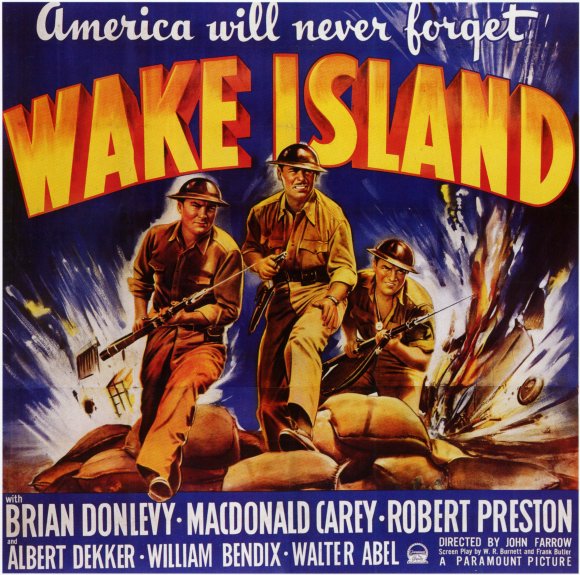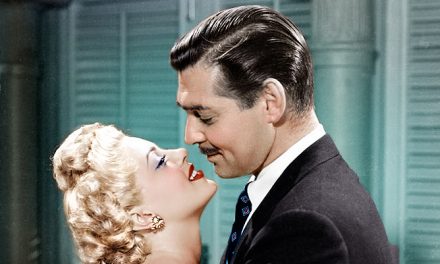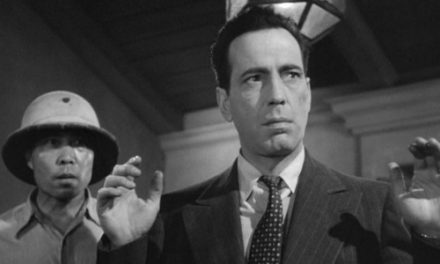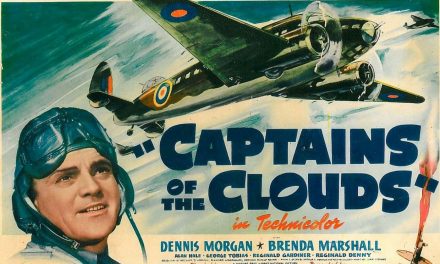Wake Island emotionally and enthrallingly depicts the harsh reality that the United States Marines experienced in December 1941 as they tried to repel the Japanese Navy immediately following the attacks on Pearl Harbor.
Trumpets blare at the outset of this movie as a narrator explains what the year 1941 was like for Marines stationed on Wake Island before the Japanese attack. While the film begins with a disclaimer explaining that all of the characters are fictional and their names are not the names of actual people who fought at Wake Island, it is evident that this movie makes every attempt to depict each violent incident as accurately as possible. There is no glorification; the honest depiction of Marines living, fighting, and dying for their country is enough to evoke admiration for the fallen Marines from the audience at home.
When the film begins, Major Geoffrey Caton (played by Brian Donlevy) has just been named the new commanding officer of the troops stationed at Wake Island, and he and others are saying their goodbyes before they are gone for what Caton describes to his daughter Cynthia as “a long time.” From this moment on, the Marines are depicted as human beings, reminding the folks back home that these men are fathers, husbands, brothers, and friends. This scene is one of the many reminders throughout the movie that these men expected to return home to their families someday, as Cynthia waited for Caton.
Wake Island brings the all-too-relatable emotions of departure to light in different ways, from the heartfelt exchange Caton has with his daughter to a weepy farewell between Marine Bruce Cameron (MacDonald Carey) and his newlywed bride. The emotional departures of these two Marines are offset by the somewhat humorous goodbye between a military contractor named McCloskey (Albert Dekker) and the Hawaiian woman he has spent some time with.
This film also serves as a reminder to civilians that, even if they have not volunteered to fight, the attack on Pearl Harbor has changed the game for all involved. McCloskey initially clashes with the “brass hats” of the military, but by the end of the film he willingly becomes a brass hat himself, picking up a gun and ultimately laying down his life with the Marines. McCloskey’s character represents any civilian and the call to action that comes with the territory during a war such as this one. All Americans – armed forces and civilians alike – have unique and important skills to offer to the war effort, as evidenced by Caton and McCloskey’s teamwork until the bitter end of the invasion.
The film has not only spoken to civilians as a call to action; it has also incited cheers from Marines stationed at Quantico Marine base during the film’s premiere, showing that Wake Island means something more than just action and drama.
As audiences who have followed the news from the battle front will know, the vastly outnumbered Marines on Wake Island could hold out for only so long against the Japanese invaders. The film must end, therefore, with the deaths of the noble characters whom director John Farrow has brought to life. Some might consider a film about an American defeat a damper on morale. However, the promise for vengeance and the claim that “this is not the end” at the conclusion of the film remind those back home and those on the front lines that America will continue to fight, regardless of the apparent loss. The assurance of retribution and that these men did not die in vain inspires the viewer to continue in the war effort.
Sources (other than the movie):
Crowther, Bosley. “THE SCREEN; ‘Wake Island,’ a Stirring Tribute to the United States Marines, With Brian Donlevy in the Cast, at the Rivoli Theatre.” The New York Times. September 2, 1942.
http://www.afi.com/members/catalog/DetailView.aspx?s=&Movie=746





